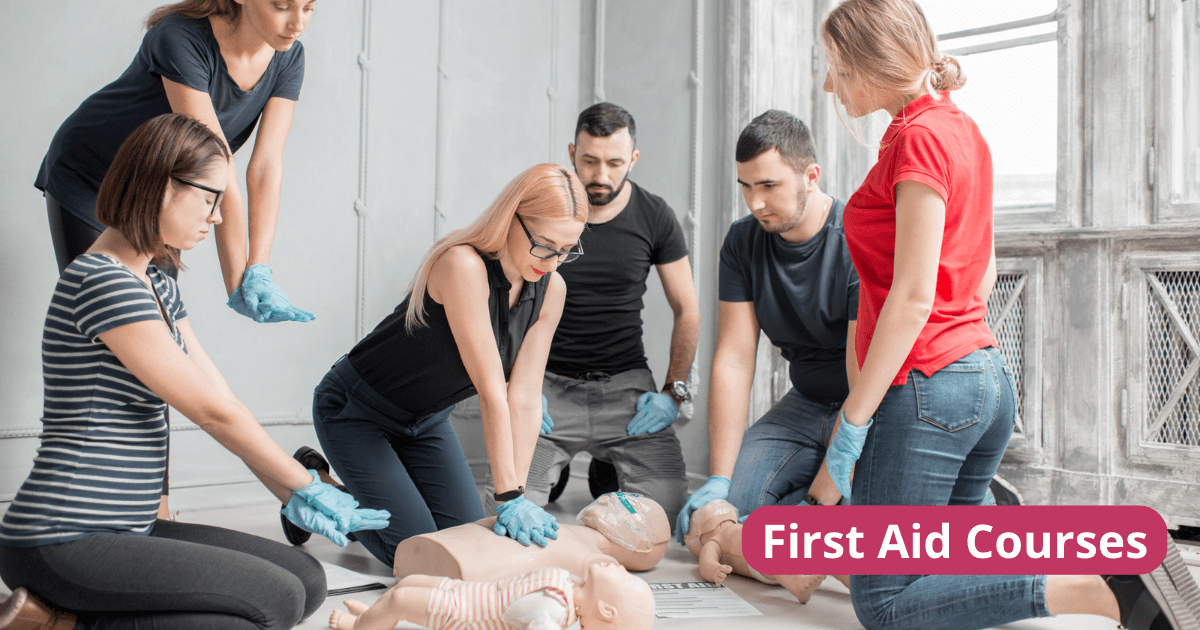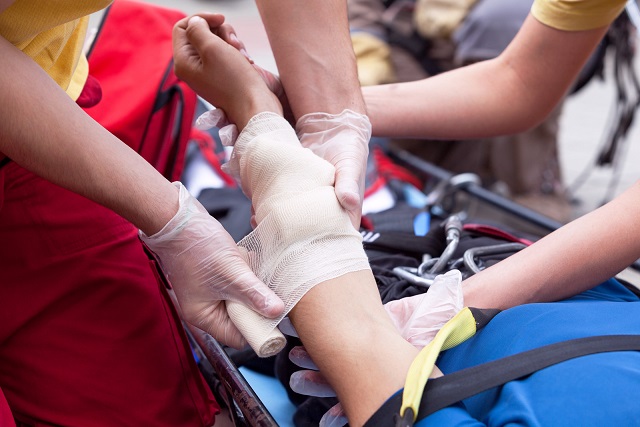Introduction: Understanding the Value of Emergency Treatment Courses
First help courses are vital for anybody seeking to equip themselves with life-saving skills. Whether you are a moms and dad, instructor, caretaker, or just an interested person, knowing emergency treatment can make all the distinction in emergency scenarios. However, there are numerous misconceptions bordering these training courses that might deter people from enlisting. This post aims to debunk these misunderstandings and provide quality on what emergency treatment and mouth-to-mouth resuscitation training courses genuinely entail.
What is a First Aid Course?
A first help course is a training program created to instruct people just how to react properly to medical emergencies. These courses cover a selection of topics consisting of mouth-to-mouth resuscitation (Cardiopulmonary Resuscitation), injury treatment, choking alleviation, and therapy for burns and fractures. Participants normally find out via hands-on method together with academic expertise, enabling them to gain confidence when faced with real-life scenarios.
The Value of CPR in First Aid Training
CPR is among one of the most vital components showed in emergency treatment training courses. The capacity to carry out mouth-to-mouth resuscitation efficiently can suggest the difference in between life and death for somebody experiencing cardiac arrest. In most first aid and CPR training courses, individuals are educated on the proper strategies for adult, child, and infant CPR. In addition, they learn how to utilize automatic external defibrillators (AEDs), which can dramatically increase survival prices if made use of promptly.
Top Misconceptions About First Aid Courses Debunked
Myth 1: First Aid Courses Are Just for Medical care Professionals
One common false impression is that just healthcare experts require to take emergency treatment training courses. This could not be better from the reality!
Why Everybody Should Take into consideration Taking a First Aid Course
Anyone can gain from learning basic emergency treatment abilities despite their profession. Emergencies happen all over-- in homes, institutions, offices, and public areas-- and having actually educated individuals readily available can conserve lives.
Myth 2: You Need to Be Healthy to Take a CPR Course
Many people believe that being fit is a requirement for taking CPR courses.
Reality Examine: No Fitness Degree Required
In fact, these courses are made for all fitness degrees. While some physical tasks may be involved (such as carrying out chest compressions), instructors adapt training approaches so everyone can get involved fully.
Myth 3: Emergency treatment Educating Is As Well Complicated to Understand
Another myth revolves around the perception that first aid training is also intricate or technical.
Simplifying Complex Procedures
First help courses use simple language and useful presentations that make finding out easily accessible for everyone. Lots of people locate they can comprehend the ideas with relative simplicity after simply a couple of hours of training.
Myth 4: Certification Is Just Essential for sure Professions
Some people assume that getting a first help certificate is just important if you operate in certain fields like medical care or education.
Certification Matters Throughout All Fields
In reality, many companies throughout different fields prefer or need workers to have existing first aid certifications as component of their workplace security protocols.
Myth 5: Once Educated, You Do Not Required Refreshers
People commonly believe that when they've completed their training, they're set for life!
Lifelong Learning Is Key
However, medical recommendations and procedures progress with time. Regular refresher courses ensure your abilities stay current-- preferably every 2 years-- to maintain your first help certificate status.
Myth 6: Online Training Is Equally As Reliable as In-Person Training
With online learning getting appeal, several assume it supplies an equivalent degree of education contrasted to in-person classes.
Hands-On Technique Trumps Display Time
While online resources offer important details, absolutely nothing defeats hands-on practice given by qualified instructors throughout in-person sessions where you can interact with devices like AEDs and technique techniques on mannequins.

Key Parts of First Aid Courses
Understanding Various Kinds of Emergency Treatment Gushes Available
When it concerns selecting a first aid course, you'll find various offerings customized for various requirements:
- Basic Life Assistance (BLS) Pediatric First Aid Wilderness First Aid Workplace Safety Training
Each kind highlights unique content based upon the environment where abilities could be applied.
Importance of Hands-On Method in Learning CPR Techniques
Why Practical Experience Issues More Than Concept Alone?
One major element that sets efficient emergency treatment training courses apart is the hands-on experience they use participants. Engaging straight with resuscitation strategies permits learners not just to comprehend however likewise keep essential details better than through lectures alone.
How Long Does It Take To Complete a First Aid Course?
Typical Period Ranges Based upon Certification Type
Generally speaking:
- Basic first-aid training might take anywhere from 4-8 hours. Comprehensive programs like First Aid and mouth-to-mouth resuscitation course could last as much as 16-20 hours over a number of days.
The period commonly depends upon qualification needs or organizational needs.


What Is Covered in a Common First Aid Course?
Key Subjects Normally Included
Recognizing emergencies Assessing targets' conditions Performing CPR Using AEDs Treating wounds & & burns Managing choking incidentsThese foundational topics prepare people for numerous emergency situation scenarios they'll likely experience throughout life.
FAQs Regarding Emergency treatment Courses
FAQ 1: What need to I offer my first aid course?
Most training courses supply equipment; nevertheless, bringing personal note-taking materials can help improve your understanding during sessions.
FAQ 2: Exactly how commonly should I renew my certification?
Typically every two years is recommended; this ensures you're upgraded on any kind of adjustments in standards Click here! or treatments within first-aid practices.
FAQ 3: Can I receive my accreditation online?
While some components might be finished online (like theory), sensible abilities need to generally be shown in person under supervision before certification is granted.
FAQ 4: Do I require prior experience prior to enrolling?
No prior experience required! Many beginner-level classes welcome those with no history expertise whatsoever; they're designed particularly for newcomers!
FAQ 5: What effect does finding out first-aid contend my workplace?
Having certified team fosters an atmosphere where safety ends up being focused on-- it furnishes colleagues with vital skills leading towards quicker responsiveness during unexpected events!
FAQ 6: Exist unique factors to consider pertaining to youngsters's safety and security when finding out about pediatric-first-aid?
Absolutely! Pediatric-specific programs focus greatly on age-related nuances making sure caretakers feel confident responding suitably when faced with emergency situations including infants/children!
Conclusion
Understanding the leading misconceptions concerning first aid programs helps debunk this essential training while motivating extensive participation across demographics who could otherwise shy away due misunderstandings! Not only does completing such programs empower people within areas-- they additionally cultivate safer atmospheres via boosted recognition coupled with readiness among residents anywhere making every effort in the direction of enhanced health and wellness outcomes general! So do not be reluctant-- enlist today into among those impactful CPR or other pertinent first-aid-courses!